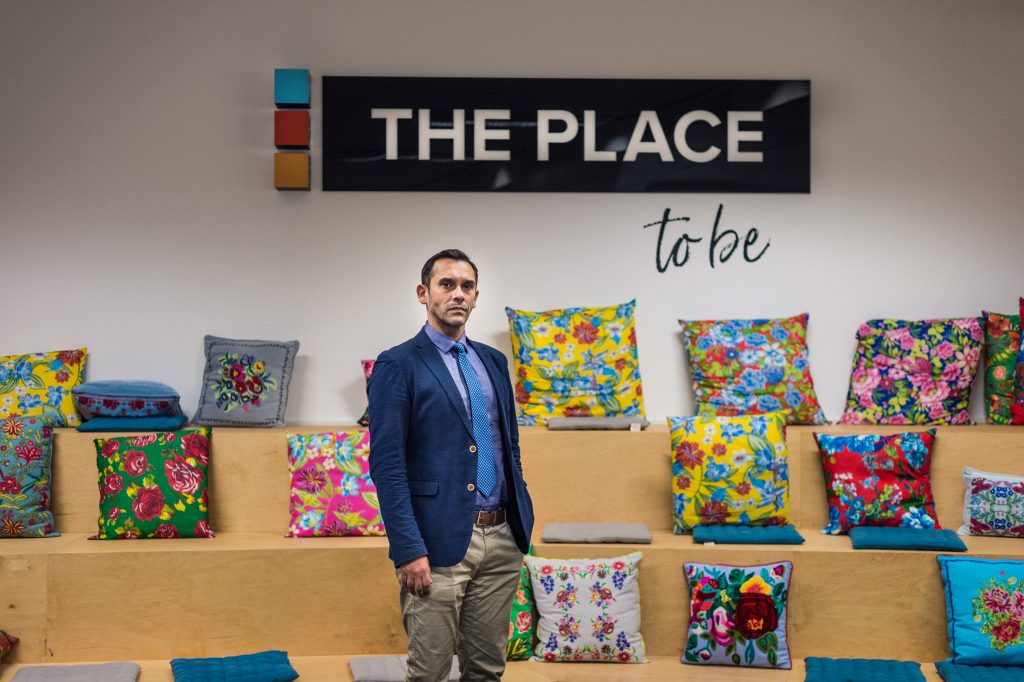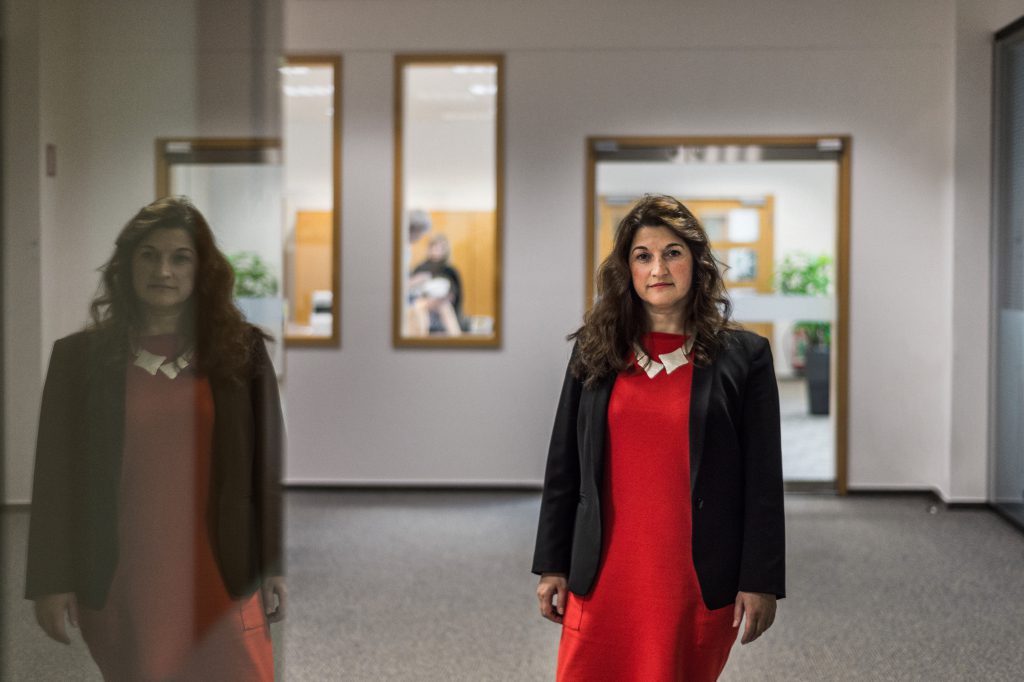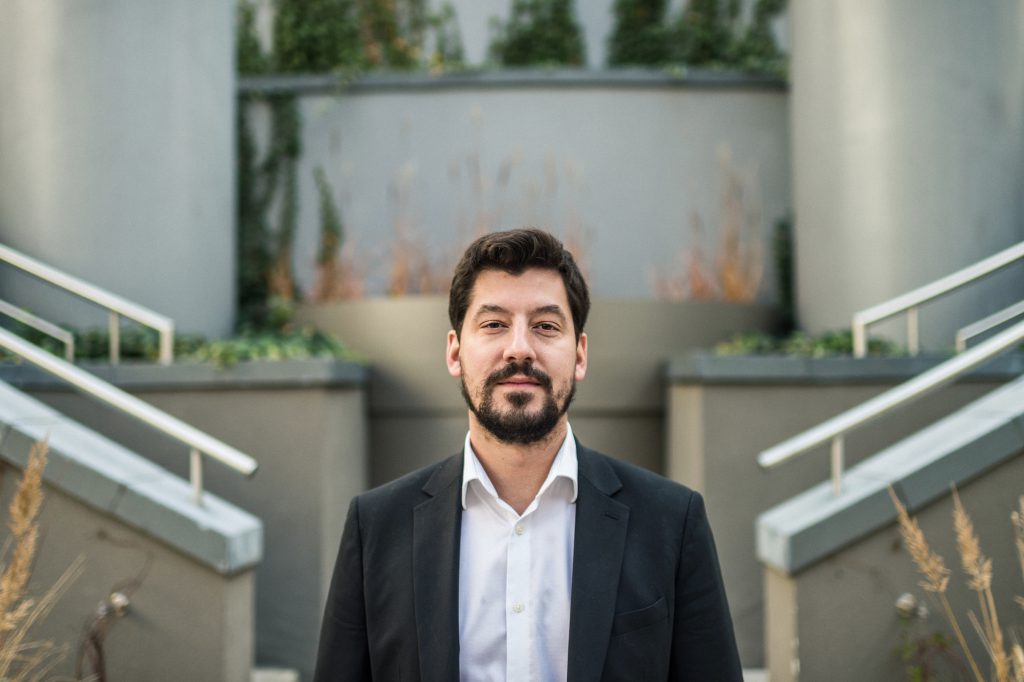With financial regulation continually changing, financial institutions are under constant pressure to keep up with the latest rules. Huge amounts of data are produced and reported on a daily basis, which is where regulatory technology (RegTech) comes in. Luxembourg is making headway as a centre for RegTech and is developing solutions to the complexity which the rules and regulations pose.
Since the financial crisis in 2008, regulation has accelerated rapidly. Globally, the financial industry was taken by surprise and had little time to plan for the wave of regulatory developments that followed. The industry had no choice but to fast-track their technologies in order to cope. Would a crisis have been prevented if the right technology were available a decade ago? What could have been done differently? Financial experts understand that they can’t go back to the past. The only thing they can do is look at the future.

Nazir Zubairi, CEO, The LHoFT
Today, RegTech has become a core focus of the Luxembourg House of Financial Technology (LHoFT). Closely linked to FundTech, RegTech accounts for about thirty to forty percent of Fintech companies in Luxembourg.
Nasir Zubairi, CEO at The LHoFT, can’t stress enough the critical role that RegTech has come to play in the business operations of financial institutions. “Whether it is operational, compliance or legal, everything is related to administration, reporting and big data consolidation.”
The advantage of Luxembourg is that RegTech companies can easily reach out to their contacts in the financial sector, making it easier to scale their company. Nevertheless, in most financial centres, RegTech remains one of the most difficult sectors in which to succeed. From the first meeting with a financial institution, to expressing interest, to getting the contract signed, the process can take up to two years. It can cause cash flow issues and create barriers to scale.

Change is inevitable and the agility to adapt to change will become a competitive advantage.
“Everyone will win if processes get refined. There are currently a lot of initiatives going on that will help to speed up and streamline activities,” says Nasir Zubairi.
JUST AS UNIQUE AS EVERYONE ELSE
One possible initiative of The LHoFT is the creation of a certification lab to pre-test solutions.
According to Nasir Zubairi, “it’s usually the procurement cycles which pose the biggest problem for financial institutions. No matter how unique banks think they are, when it comes to procurement, they all check the same things for due diligence and ask similar questions in RFPs.”
The LHoFT, working with key industry partners, is looking to create a standard to pre-test solutions, which would make the procurement process faster, and allow RegTech companies to show a test certificate and report to their clients, bypassing some of the tests of the bank.
In finance, new technologies always have to be thoroughly tested. Once they go live, they have to work flawlessly. However, this often leads to an excessive level of due diligence.
“The perfect product does not exist. When it goes live, there will always be a problem. You need to analyse the processes you have in place. What is the marginal benefit of doing 100 steps instead of 50 or 60? Yes, it’s absolutely true that you need to mitigate core risks and that you can’t have massive failures or security loopholes, but beyond that, how much is really necessary? You have to make sure you keep moving forward,” explains Mr Zubairi.

The perfect product does not exist. When it goes live, there will always be a problem.
Future competitiveness in finance will largely depend on agility. “PSD2, MIFID 2… regulation always iterates as financial services and technologies evolve. Change is inevitable and the agility to adapt to change will become a competitive advantage” he adds.
Nasir’s advice is rather pragmatic: Learn enough and keep up with the industry developments, then do something in a lean and agile way, analyse the impact, understand the core risk, learn from mistakes… and then repeat.
“Be it regulation, technologies or processes, we are not building something that will last and stand the test of time forever. The leaner the processes, the fitter you will be to embrace and keep up with change.”

The leaner the processes, the fitter you will be to embrace and keep up with change.
How about the systemic risks related to FinTech? “There is a lot of talk about systemic risk in the crypto world, artificial intelligence, big data, etc. My argument is that there may be certain dangers in the long-term, but right now why not park it for the time being and focus on the fact that a lack of digitalisation in institutions poses a serious systemic risk? If banks collapse in the next years, it may well be caused by inefficiency in an environment of increasing margin compression,” he continues.
Nasir Zubairi also states that Luxembourg, or other financial centres, may consider creating a regulatory reporting hub.
“With PRIPS, for example, the volume of documentation that needs to be produced and checked is tremendous. We can save time and money for the financial institutions as well as the regulator if we manage to automate some of the rules. As soon as the right system is able to intelligently collect, report, and analyse the data, the number of new regulations will no longer be such a cost burden.”
ZILLIONS OF DATA POINTS
State Street, one of the partners of The LHoFT, started working with several RegTech companies over the last couple of years.
There are various reasons why financial institutions want to make use of RegTech. Cristina Ferreira, Head of Regulatory Solutions and Innovation at State Street, highlights three of them: making operational processes efficient, enhancing client experience relating to compliance and regulation, as well as staying ahead of the competition.

Christina Ferreira, Head of Regulatory Solutions and Innovation, State Street
State Street is servicing over USD 3 trillion in assets under management, a huge amount of information to oversee and control.

RegTech solutions are an enabler for us to manage efficiently large quantities of data.
“RegTech solutions are an enabler for us to manage efficiently large quantities of data. Managing all that data without technology has become humanly impossible, especially in terms of accuracy and timeliness. There are a lot of transactions that need to be controlled and executed on a daily basis at the frequency of the net asset value (NAV) calculation. Without technology, the human can’t handle the zillions of data points that are created,” explains Cristina Ferreira.
Whenever new regulations come into place, State Street also strives to enhance their client services.
“For example, to calculate the PRIPS and MIFID costs and charges, our clients require a lot of data from us in order to comply with the regulation. They need up to 10 years of historical transaction data. The scale and amount of information could not be managed without involving a RegTech,” she adds.

The scale and amount of information could not be managed without involving a RegTech.
There are currently many ‘unknowns’ for banks and asset management companies. To stay ahead of the competition, they tap into the technological knowhow and the innovative mind-set of the RegTechs.
“Nowadays the fund industry faces heavy fees. You even have zero-fee funds. So you can imagine how this cascades down to other service providers. We therefore need a successful digital strategy to lead the next generation of investment fund servicing. We must understand the social and economic trends that are shaping the financial industry and ask the important questions. How will investors invest in the future, what technologies will they be using, what will be the financial products of the future, what infrastructure will be used?”
REGULATED MEETS UNREGULATED
Unlike banks or asset management companies, RegTech companies are not regulated, which makes the cooperation occasionally more difficult.
The challenge is that banks and asset management companies put certain protective clauses (security, compliance with outsourcing, etc) in their contracts that need to be explained to the RegTech firms. A 10-page contract takes time to negotiate and the provisions aren’t always understood.
“RegTech companies have tech people but no legal expert. Lawyers are costly. There are times they could really benefit from legal support,” underlines Ms Ferreira.
THE FINEST SELECTION
Partnering with a RegTech firm is an investment decision which must not be taken lightly.
State Street has access to a large internal network which compares RegTech solutions from various countries. It is also one of the members of the LHOFT, which consequently eases the selection process in Luxembourg.

The LHoFT is a real success story.
“The LHOFT has the know-how, the infrastructure, and the framework to select the best breed of FinTech and RegTech companies. The LHoFT is a real success story. The advantage is that you can find all the companies in one location, making it easy to meet them all. In addition to sourcing RegTechs, the LHoFT also helps you to develop ideas and solutions. It’s an environment where you can really think ahead,” explains Cristina Ferreira.
FROM BOOKS TO FUNDS

Christian Gillot, Founder, Tetrao
One of the RegTech companies in The LHoFT that is currently driving innovation is Tetrao. Every day, millions of people in finance manually process the same kind of documentation produced by thousands of different actors. It is slow, expensive and unscalable. Tetrao has developed a unique artificial intelligence machine which is capable of automating those processes.

I wanted to grow my company out of Luxembourg because I needed to have an international environment for my business.
The founder, Christian Gillot, born in France’s neighbouring Lorraine region said, it was a ‘no-brainer’ for him to set up his company in Luxembourg. “I wanted to grow my company out of Luxembourg because I needed to have an international environment for my business,” he explains.
After obtaining his PhD, Mr Gillot worked in a start-up where he encountered technical problems relating to the automation of websites that sell books.
“Websites continuously change their lay-out and branding. I had to look after 150 websites and manage the data logistics. The real challenge was integrating the data. Out of the 150 websites, I had to redo ten of them on a daily basis due to integration errors,” he explains.
Publishers consider their bestseller the most important book in the world. The process of the launch and sales need to be managed flawlessly.
“One of our publishers won the Femina literature prize in France. At some point, Amazon was checking the book prices and found out that a small bookstore in the countryside was selling the book ten euro cheaper. Shortly after, the second biggest bookseller in France, Fnac, reacted and said that it would change its price as well if Amazon would not correct the error.”
Investment funds face exactly the same issues. “The data integration can be messy,” continues Mr Gillot. All the fund documents are different, and they all present the data in their own way.

Humans will always be able to adapt to a new lay out or colour. It won’t affect their understanding of the information.
“Some asset managers already faced multi-million dollar penalties because their KID said that the product was less risky than the prospectus. These kinds of data logistics errors can have serious consequences.”
Christian’s solution was to revert to human brainpower. “A human being can read and understand the variety of documentation templates. Humans will always be able to adapt to a new lay out or colour. It won’t affect their understanding of the information”.
NOT A FANCY APP TO CALL A TAXI
It took Tetrao two years of R&D to have a working prototype. Christian Gillot works with dedicated teams in Luxembourg, France and Spain. The Luxembourg team is focused on Artificial Intelligence. “We managed to attract top experts to Luxembourg who are focused on making sure that the AI is working.”
“RegTech is one of the toughest areas because it’s very technical. It’s not like in B2C where you develop a new fancy app to call a taxi,” stresses Mr Gillot.

RegTech is one of the toughest areas because it’s very technical.
Moreover, a lot of insurance companies process data that is always presented in the same way. For example, the bulk of insurance documents look similar and apply the same lay out.
“It’s very simple to create AI for such insurance documents. Companies don’t even need a RegTech partner to do it and can build it in-house. What we do is different. We try to understand all the visual elements, whether it is a document with 1- 2 or 3 columns, whether it includes a table or uses different colours.”
Mr Gillot explains that AI is like a kid in school. It needs to be shown a lot of examples in order to learn.
First, the annotators look at a variety of asset manager’s documents. What is the umbrella company? What is the depositary bank? What is the entry charge? What is the name of the share? The currency? There are many questions that will need answering again and again, depending on how complex they are.
“Some people say data is the new oil. Well, these annotations are the refinery. You have to process the data. Only afterwards, the AI experts can start to build the statistical machine.”
Luxembourg is Europe’s leading centre for investment funds. The big advantage for Tetrao is that the local ecosystem is only one phone call away from headquarters.

We have more success developing our solution in France by being based in Luxembourg, than by being based in Paris.
“We have more success developing our solution in France by being based in Luxembourg, than by being based in Paris. In Paris, we have to go through multiple layers whereas in Luxembourg, you have the strength of the community. This also means that if you try to fool people, then you better do it out of a big city. Here in Luxembourg, everyone will know it when you do a bad job.”
Christian Gillot also reminds us of the positive impact that people in Fintech can bring. As a child, he learned programming from his father. “The great thing is that the vast majority of IT people are very good and open-hearted people. They want to build something for the community. My advice to young people would be: It’s okay to be crazy. To be successful in today’s world, you need to be extremely weird. Know what you are good at and do what you can do to have a positive impact on society.”
DE-RISKING FINANCE

Regtech solutions will allow fund industry jobs to become more interesting for financial professionals. Right now, some of them might be overworked, taking unnecessary risks. There are currently roles focused on manually checking thousands of KIDs. It’s almost an impossible task, with a lot of personal responsibility attached. RegTech can go along to help de-risk finance.
Another example of a RegTech company that is bringing transparency and quality to the work of those working in the fund industry is ‘ume’. ‘ume’ is a platform that is standardising and mutualising the information for due diligence of fund distributors.
Laurent Denayer, CEO of ume, commented: “It’s a very important market to cover. If a distributor sells a fund to the wrong investor then the entire reputation of the asset manager is on the line.”
In terms of due diligence questionnaires (DDQs), there is currently no standard, or rather multiple standards in the market. Each management company sends its own questionnaire to all its distributors.
“As a distributor, it’s not fun to fill out all these questionnaires, especially when management companies try to capture the same information, over and over again, yet in different ways,” explains Mr Denayer.

If a distributor sells a fund to the wrong investor then the entire reputation of the asset manager is on the line.
On average, it takes distributors three to nine months to answer. Laurent Denayer explains why. “An average bank in Europe deals with 50 to 200 management companies that have their own questionnaires. The person in charge of answering all these questionnaires has to do many other things as well. You could say that if you finish the due diligence ten or eleven months after you started, something is seriously wrong in that industry.”

An average bank in Europe deals with 50 to 200 management companies that have their own questionnaires.
For management companies, it also takes time, at least 10-15 hours per questionnaire. They need to draft the questions, while constantly taking into account new regulations. Then the management company will sometimes need to call the distributor several times to get an answer. Then if they realise the answer isn’t complete, they have to call again. After this back and forth they then need to summarize the information, discuss the results with the legal as well as compliance teams, and finally prepare a report for the board.
“All these steps make this process very time consuming for highly-qualified people and, at the end of the day, it brings hardly any added value,” adds Mr Denayer.
In order to address this, ume developed one standard questionnaire. The distributors only need to fill it out once every year and the management companies are given immediate access. At the end, it makes life easier for both the distributors and management companies and saves a lot of compliance costs.
A TRIP ADVISOR ‘MADE IN LUXEMBOURG
ume also functions as a platform to find distributors, a kind of TripAdvisor for fund distributions. “If you want to sell your funds in Portugal or South Africa, and you don’t know anyone there, it can take a lot of time to find the right contact person and compile the information. You will need to hire a consultant and you might need to fly there 4-5 times.” Mr Denayer points out that fund managers can’t always justify such costs.
Via the ume-platform asset managers can now connect and find distributors all over the world, and compare their risk profiles.
The advantage is that Luxembourg is part of the solution by being home to the world’s top 100 asset management firms. “By working with 20% of the ManCo’s in Luxembourg, we can cover 80% of the world on the distribution side. Out of Luxembourg, we have been able to embark on our journey, reach a global directory of distributors and make life much more efficient for many in the future.”




